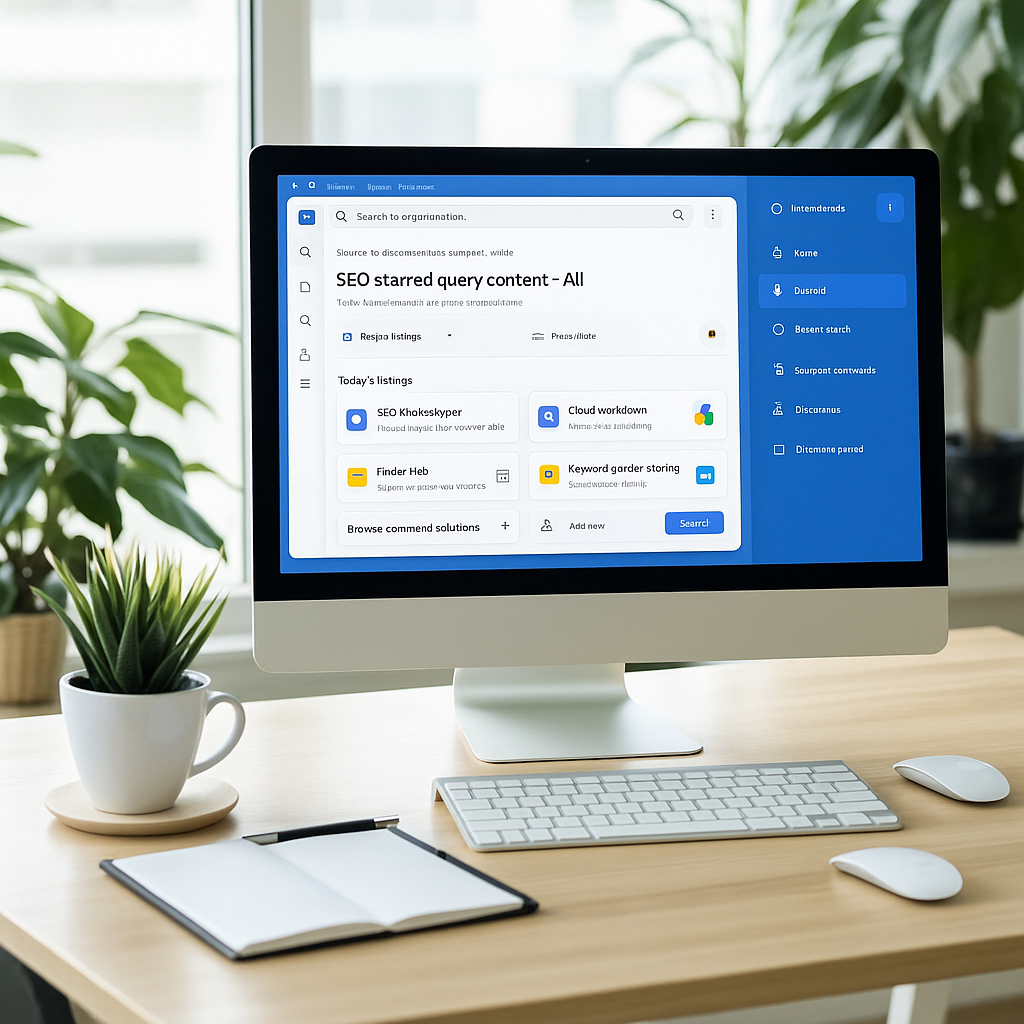Overview of the AI Max Update
Google’s AI Max Search update enhances how the search engine interprets and delivers information by deepening query understanding and integrating AI-powered tools directly into the search experience. It moves beyond simple keyword matching to analyze user intent and context, resulting in more relevant and personalized results. The update introduces visual and interactive elements that make the search interface more dynamic and engaging, creating a more intuitive environment focused on relevance and user needs.

Impact on SEO and Content Strategy
For SEO professionals, traditional tactics centered on keywords and backlinks are insufficient. Content must emphasize clarity, depth, and alignment with specific user intents. Personalized search results vary based on individual behavior and preferences, increasing competition and requiring businesses to understand their audiences more intimately. The integration of interactive snippets and visual aids encourages longer user engagement, prompting SEO strategies to focus on content that invites interaction as well as answers queries.
Adapting to AI Max involves balancing technical SEO with innovative content creation. Monitoring search performance and user engagement is essential to refine strategies. Success depends on delivering meaningful, personalized experiences that align with Google’s evolving AI capabilities.
Changes in Paid Search Campaigns
AI Max introduces “keywordless targeting,” allowing Google to analyze landing page content and ad group assets to identify relevant queries beyond manually selected keywords. This expands campaign reach by tapping into broader search intent signals while maintaining familiar keyword frameworks. The rollout began in late May and is expected to complete by early Q3, with marketers able to opt into AI-powered features to test and adapt without losing control.
Geographic targeting has improved, enabling advertisers to reach users based on search intent related to specific locations, regardless of physical presence. More granular controls allow enabling or disabling features like search term matching and final URL expansion at campaign and ad group levels, balancing automation with manual oversight for brand safety and precision.
Reporting enhancements provide clearer insights into AI Max’s impact on search term performance and asset combinations, facilitating data-driven optimization. Early results show potential conversion increases averaging 14 percent, with higher gains for campaigns focused on exact and phrase match keywords. AI Max adapts to seasonal trends and user behavior, helping advertisers stay relevant as consumer interests shift.
Testing AI Max through Google’s experiment features is recommended to understand its effects and identify opportunities for improved conversions and targeting. Blending AI-driven automation with strategic human input can enhance campaign effectiveness.
Frequently Asked Questions About AI Max and SEO
- How does AI Max affect SEO rankings?
Rankings may vary more widely between users due to personalized results based on behavior and preferences. SEO strategies should focus on creating content that resonates with diverse audience segments and analyze performance with attention to user intent patterns rather than fixed rankings. - What role do AI-powered interactive features play?
Interactive snippets and visual aids encourage deeper user engagement on the search page. Optimizing for interaction and user experience, not just clicks, can improve engagement metrics and indirectly influence search performance. - How does AI Max influence paid search campaigns?
It offers advanced targeting options like keywordless targeting and intent-based geographic relevance, expanding audience reach while maintaining control through granular settings. Experimentation helps marketers optimize campaigns and improve conversion rates.
Moving Forward with AI Max
Google’s AI Max Search update reshapes how search engines understand and respond to user intent by combining advanced AI with personalized, interactive experiences. Businesses and marketers should create content that addresses deeper user needs and leverage new AI-driven tools and targeting options to engage audiences effectively. Balancing innovation with strategic management and ongoing experimentation will help brands improve visibility, relevance, and conversion in an increasingly intelligent search environment.
As Ginny Marvin from Search Engine Land notes, “The AI Max Search update represents a significant leap forward in how search engines operate, emphasizing the need for businesses to adapt their digital marketing strategies accordingly.”
Read the original article on Search Engine Land.













.png)

